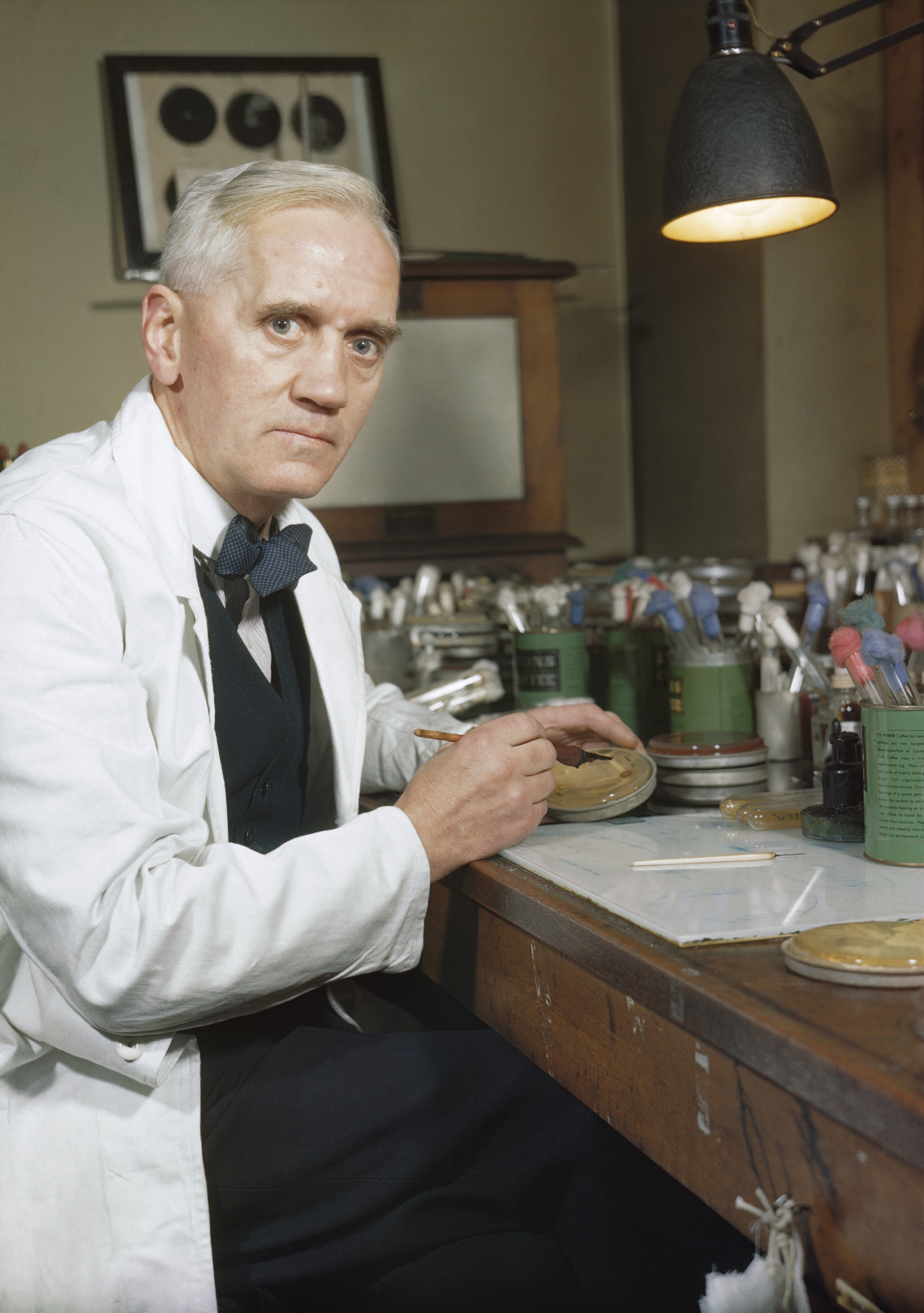 |
| Sir Alexander Fleming |
Unusually Maggie S, who rarely sings at the club, kicked off on the former subject with a chorus of Flower of Scotland.
The Six Nations provided the inspiration for quite a few songs throughout the evening. Lesley's first contribution was Max Boyce's The Scottish trip. Simon took up the French cause with Chevaliers de la table ronde. Lesley retorted in support of her Welsh homeland with Guide me o thou great Jehovah, accompanied by husband Richard singing bass. Mike showed his contempt as usual for the Irish song Fields of Athenry by singing the parody (Fed up with) the fields of Athenry.
If you're wondering how penicillin affected the songs, it was when Steve sang The trooper cut down (Roud 2) which is about a soldier who died of Syphilis which was a serious problem in the armed forces (and elsewhere) before the advent of antibiotics. There is a reference to Lock Hospital which dealt with venereal diseases and to white mercury which was the potentially fatal treatment used before antibiotics. Derek followed on from this with a version based on the same song but this time about the social trials of being a student at Oxford University.
It was great to see Paul again, hear his tunes and his stories. He had broken a string on his guitar while tuning before setting out for the club, so he was playing his second guitar this evening. Paul played his own tune, No animals were hurt in the writing of this song. The explanation was that his father was a Welsh boxing champion who fed his sons copious amounts of meat. Possibly as a reaction Paul has been a vegetarian since his teenage years; his brother left school for the army but turned vegetarian when he left the service.
Being relatively new to the folk music world Paul asks some questions that most of us wouldn't think of, which is a great catalyst to all sorts of discussion and songs. His presence at a session really adds to the experience, and just shows how great it could be if some more keen folk newbies could come along to join us. An example of this was when Richard sang The crabfish (Roud 149). Richard explained that, like the version linked from here, his was fairly clean, being the one recorded by Cecil Sharp. Paul asked the perfectly reasonable question of who was Cecil Sharp. It was quickly explained that he was one of the earliest collectors of English folk songs and while he collected anything he sometimes cleaned up the versions he published. To make the point Derek went on to sing his own song The man who wrote the songs.
Tom's songs included his own Dancing fly, written in 1981, and Linden Lea with words written by William Barnes and music by Ralph Vaughan Williams. Colin sang about the difficulty of learning to play the guitar in Mark Cohen's Perennial Beginner. He also sang Peg and awl which describes the effect of the industrial revolution on the shoe making industry.
Mike finished off the session as it had started with Roy Williamson's Flower of Scotland.
Next week's session will be on 14 February, so think about your Valentine's Day themed songs. If you're short on love songs don't worry you can sing anything you like really.
Here's a selection of these songs plus some others sung during the session.
No comments:
Post a Comment